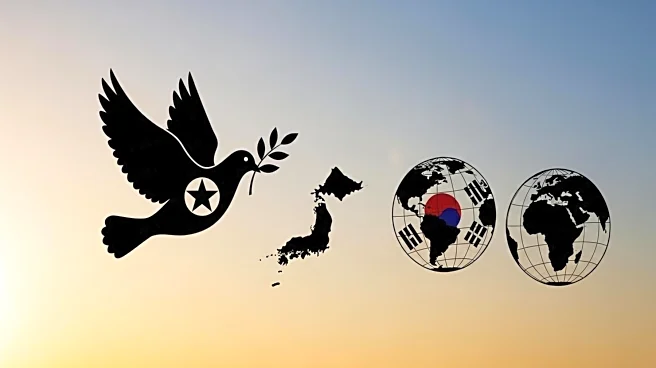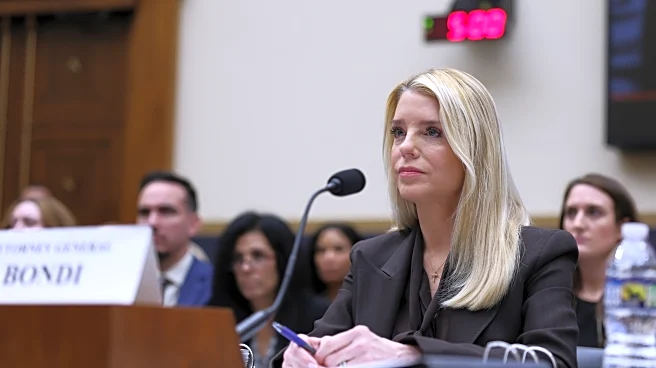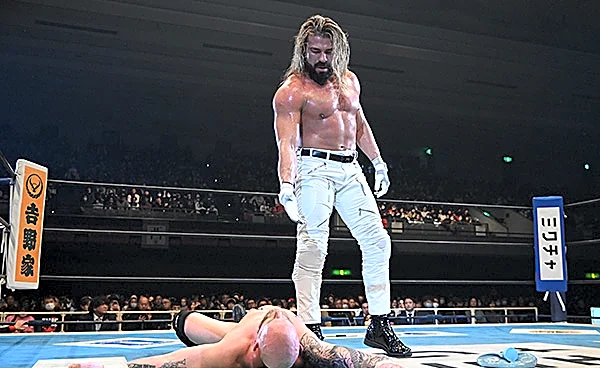What's Happening?
South Korea's President Lee Jae Myung has formally requested President Donald Trump to assume the role of a 'peacemaker' in efforts to reduce military tensions with North Korea. This request comes as South Korea seeks to re-engage North Korea in dialogue to address ongoing military tensions on the Korean Peninsula. President Trump, who has previously met with North Korean leader Kim Jong Un, has expressed willingness to engage with North Korea again. The request was made public by South Korea's Foreign Minister Cho Hyun, who emphasized the importance of denuclearization and the establishment of a military hotline to prevent skirmishes. The backdrop to this development includes past summits between Trump and Kim, which failed to resolve disagreements over U.S.-led sanctions and North Korea's nuclear ambitions.
Why It's Important?
The request for President Trump to mediate is significant as it highlights South Korea's strategic approach to de-escalate tensions with North Korea, which has been building its nuclear arsenal. The involvement of a high-profile figure like Trump could potentially bring North Korea back to the negotiating table, which is crucial for regional stability. The situation is further complicated by the geopolitical shifts following Russia's invasion of Ukraine, which has made the global security environment more precarious. Successful mediation could lead to reduced military tensions and a step towards denuclearization, benefiting not only the Korean Peninsula but also global security dynamics.
What's Next?
President Trump's upcoming visit to South Korea for the Asia-Pacific Economic Cooperation summit presents an opportunity for potential diplomatic engagements. There is speculation about a possible meeting between Trump and Kim Jong Un at the Korean border, which could reignite stalled diplomatic efforts. Additionally, Trump is expected to meet with Chinese leader Xi Jinping, which could influence the broader geopolitical landscape. The outcomes of these meetings could shape future diplomatic strategies and impact the security situation in Northeast Asia.










